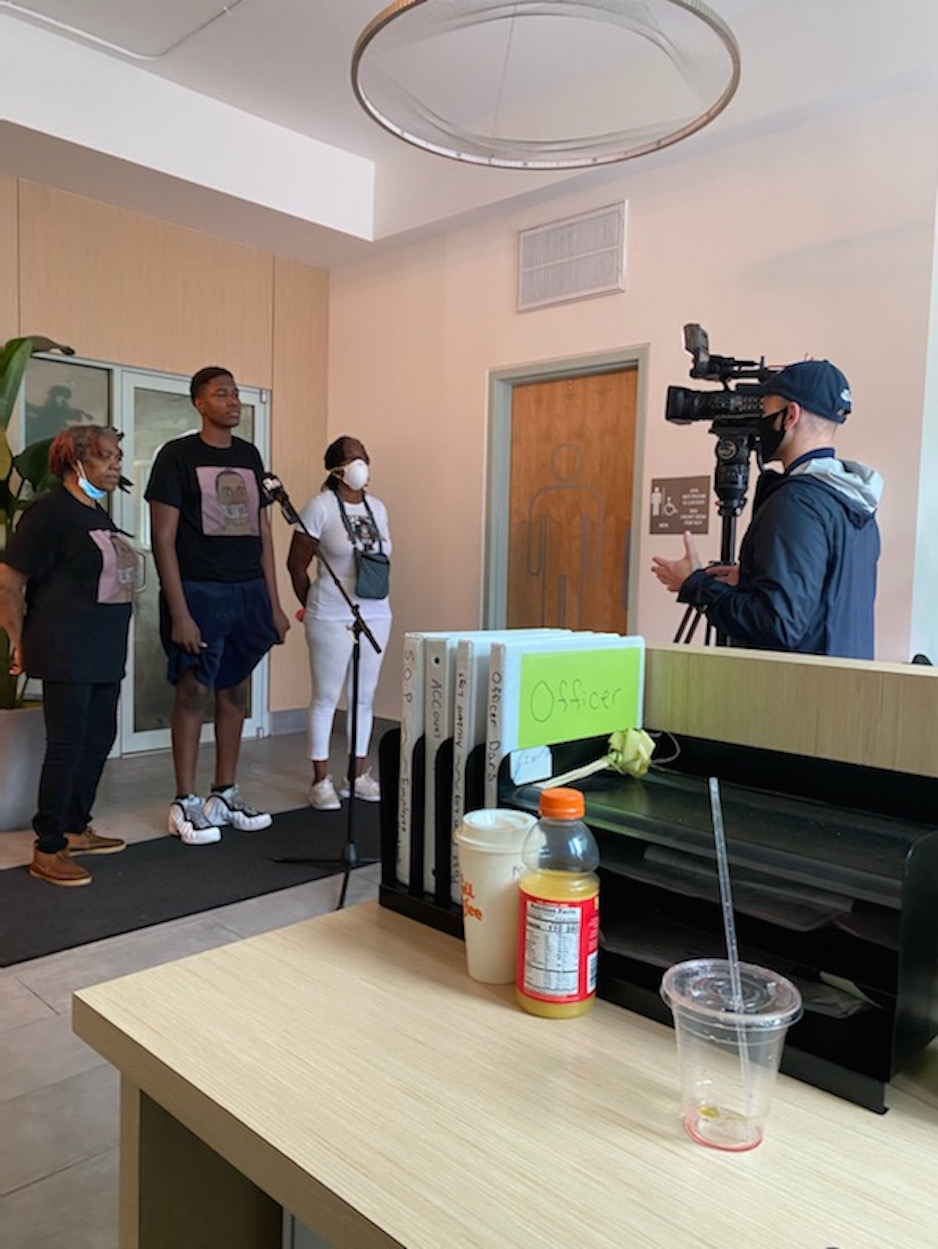Several alumni from Klein College of Media and Communication are hard at work at various television and media companies, keeping the country updated on the state of affairs amid COVID-19. As a result of the ongoing pandemic, they have grappled with many major adjustments. Read on to learn more about their experiences.
Kelly Antonacci, KLN ‘18, is a multimedia journalist and reporter for WSAV in Savannah, Georgia. One of the most difficult COVID-19 stories she tackled was early in the pandemic’s spread in the United States. Arnold and Lorlee Tenenbaum, a prominent and influential couple in Savannah, passed away within days of each other after both testing positive for coronavirus. The pair celebrated their 60th wedding anniversary about six months prior to their deaths. “I talked to their daughters and a few other family members and colleagues and I think that covering that story, it was the first time I realized that this was serious and this is impacting lives,” says Antonacci. “And from then on it changed my whole perspective on how I covered it and just how I felt toward the whole thing.”
Jon Dowding, KLN ‘19, is another multimedia journalist and digital reporter for WSAV in Savannah. Since the pandemic started, Dowding has often joked with friends that while Klein gave him valuable training, no class could have prepared him for reporting during a pandemic. One of his biggest concerns is making sure he keeps up with his mental health. He started therapy to cope with the changes brought on by the combined strain of covering pandemic stories, political developments and anti-racism and anti-police brutality protests. For a journalist, he says, “the biggest challenges you’re facing now are adaptability and a reporter’s protection: your protection from a virus you can’t see and also from civil unrest because of police brutality.”
Hannah McComsey, KLN ‘18, is a multimedia journalist and reporter for WSET in Lynchburg, Virginia. Although current circumstances are difficult, she recognizes that she is privileged to still have her career. She uses her role for a powerful purpose: to tell meaningful stories. However, she misses being able to give her stories a personal touch. Social distancing guidelines suggest that journalists keep a safe distance away from interviewees and colleagues, but she does not let those restrictions interrupt the quality of her work. “I think that the pandemic has really kind of pushed us to make sure that we’re elevating our storytelling so that our audiences can one, see what’s happening and two, hear from the people who are in the thick of it,” she says.
Maxine Streicher, KLN ‘14, is a reporter for WBFF in Baltimore, Maryland. She has exercised extra caution while reporting because she is an expectant mother who wants to keep herself and her baby safe. But this does not mean she has taken her work any less seriously. She believes that it is more important than ever to bring visibility to the stories that affect Baltimore and its surrounding areas. “That’s really what journalism is about anyways, is just adapting to the situation,” she says. “Everyday you don’t really know what your day is going to hold and you kind of figure it out, you go from there and that’s just what the past three months have taught us. You kind of have to go with the flow and make sure that you’re staying safe and accurately telling stories and really conveying the importance of such a major, major, national story in the community we live and serve in.”
Despite the many different obstacles in their paths, these journalists are continuing to commit themselves to comprehensive coverage, as their work keeping the public informed is essential during these uncertain times.

